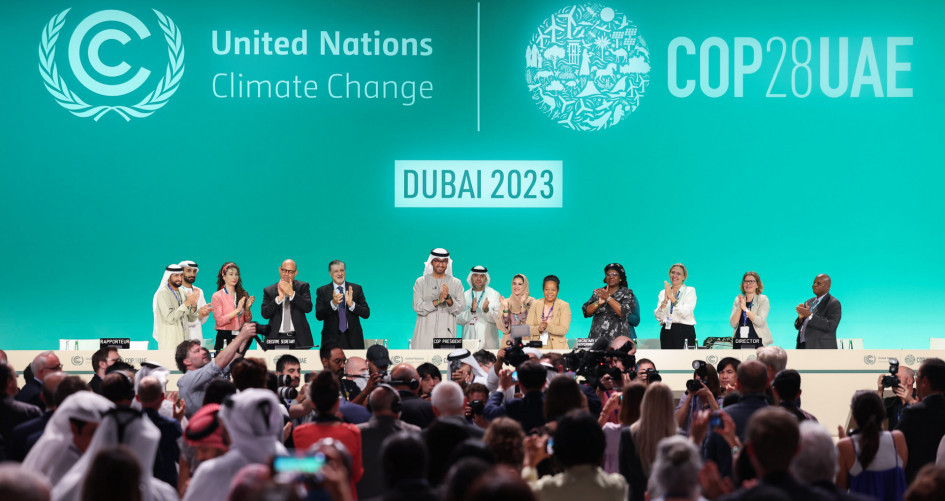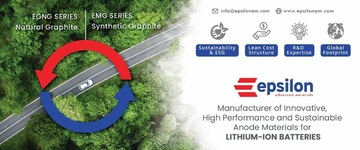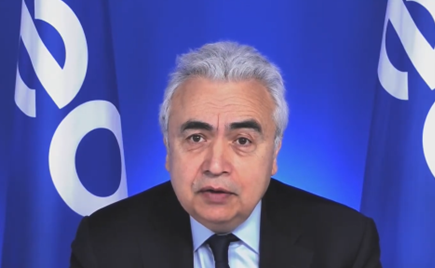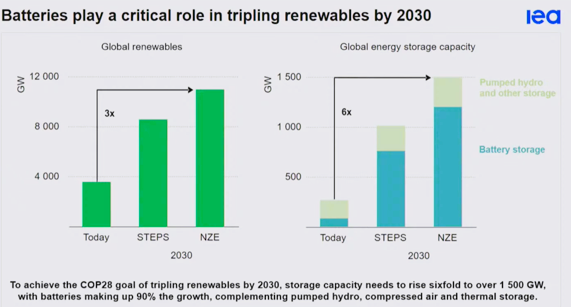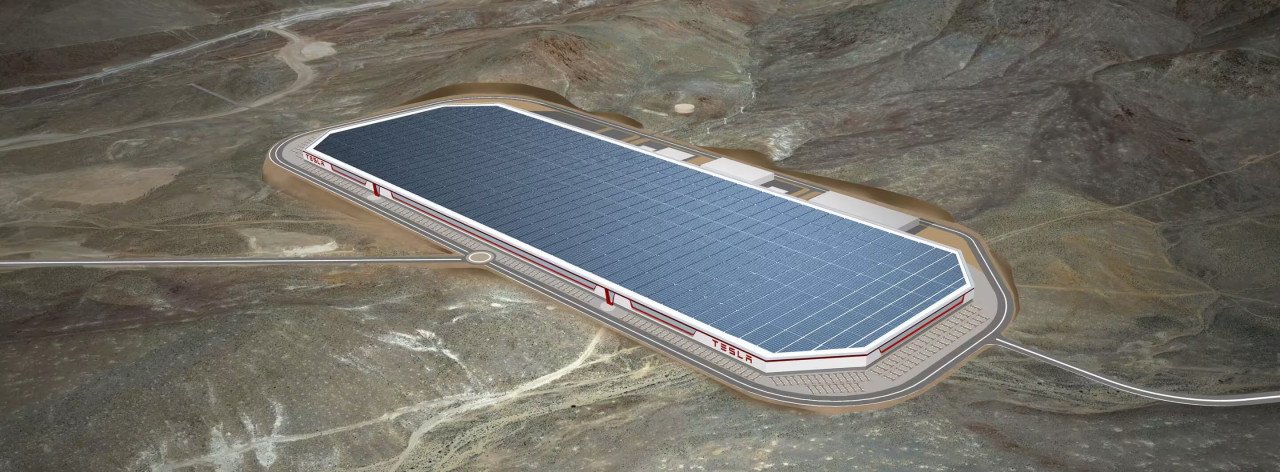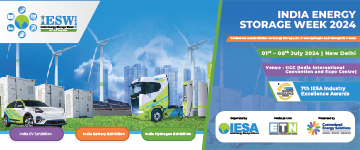Rapid expansion in batteries crucial to meet targets outlined at COP28 says IEA
Batteries need to lead a six-fold increase in global energy storage to help the world meet the 2030 targets outlined at COP28 according to the latest report by the International Energy Agency (IEA).
The report notes that batteries deployed in the power sector almost doubled last year and outpaced all other clean energy technologies in 2023. Factors such as falling costs of batteries, advancement in innovation, and supportive industrial policies have contributed to the significant growth in battery deployment.
"The electricity and transport sectors are two key pillars for bringing down emissions quickly enough to meet the targets agreed at COP28 and keep open the possibility of limiting global warming to 1.5 °C," said Fatih Birol, Executive Director, IEA.
"Batteries will provide the foundations in both areas, playing an invaluable role in scaling up renewables and electrifying transport while delivering secure and sustainable energy for businesses and households. The combination of solar PV and batteries is today competitive with new coal plants in India. And just in the next few years, it will be cheaper than new coal in China and gas-fired power in the United States. Batteries are changing the game before our eyes."
At the COP28 climate conference held in Dubai last year, the countries agreed to triple renewable energy capacity by 2030, double the pace of energy efficiency improvements, and agreed to transition away from fossil fuels.
To achieve the target of tripling global renewable energy capacity by 2030, the world would require 1500 GW of energy storage, of which 1,200 GW would come from batteries.
"A shortfall in deploying enough batteries would risk stalling clean energy transitions in the power sector," IEA report cautioned.
In the scenario projected by the IEA, overall energy storage capacity will increase six-fold by 2030 worldwide, with batteries accounting for 90 percent of the increase and pumped hydropower making up most of the rest.
On Thursday, the IEA released its first all-comprehensive analysis of the entire battery ecosystem, IEA's Special Report on Batteries and Secure Energy Transitions. The report chalks out the role of batteries alongside renewables as a competitive, secure, and sustainable alternative to fossil fuels – while also laying the foundation for the decarbonization of road transport by powering electric vehicles.
